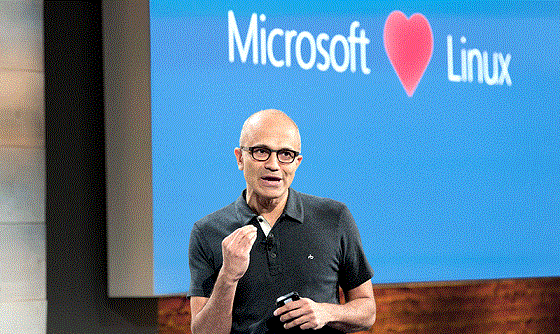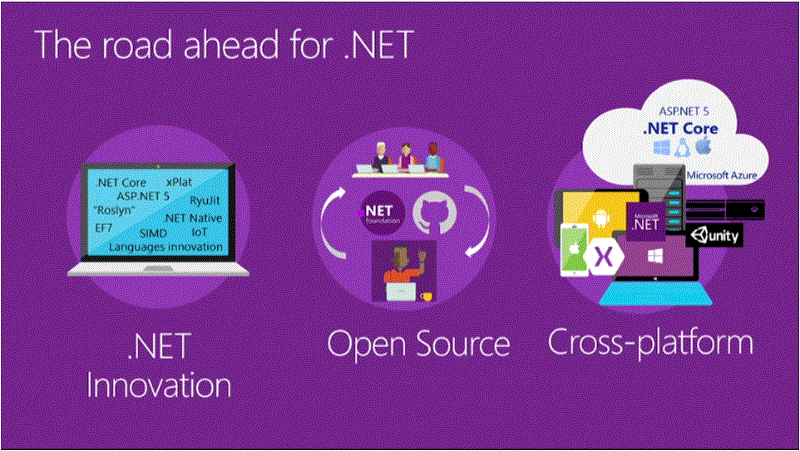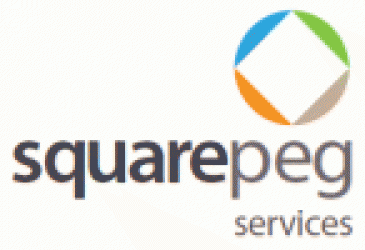I’m a big fan of Microsoft.
That statement might result in either an internalized or audible chuckle from a lot of folks, but what can I say? I am a fan. I’ve been a fan since I learned MS-DOS and Basic programming back in the 80’s (somewhat ironically, my Dad went out and bought an Apple IIe computer the day after we saw the movie War Games – that was my first personal computer and I still know the WOPR launch codes to this day; I’m not proud of it), through working on my choice of brand new color Macintosh computers or Dell 486’s in the college computer lab (again, ironically I found that at that time I enjoyed writing my COBOL code on the Mac emulators more than I did the Dells), even through what I would consider the “Dark Days” of Ballmer where I bought multiple iPods and iPhones and iDevices, to now what I would consider a fresh new start for Microsoft as a company. I’ve always been a fan.
Why you might ask? Developers.
I consider myself a software developer at heart. I love building software. I view the software development process as an art form – equally an art as painting a picture, sculpting a statue or playing piano. And Microsoft has ALWAYS taken care of developers. Microsoft understands something that I think Apple and a lot of other tech companies have missed – that, at least for the enterprise, developers are the key. Keep developers happy and they will keep customers in the Microsoft ecosystem.
You might be saying, “Hold on there a second consultant-guy!?! Have you ever heard of the App Store and all the money it has made for software developers over the past decade?”; and you’d have a point there – if you were focused on the CONSUMER as your end-user (e.g. “casual” users like K-12 students and households/family members, etc.). I’m focused on ENTERPRISE end-users – corporate customers that are looking for technology solutions to solve complex business problems that won’t break the bank. Companies and end-users that are looking towards Productivity. With the help of developers looking for alternatives to Java and C, Microsoft grabbed onto those customers decades ago with Visual Basic, SQL Server, Windows NT and MS Office and has not lost sight of the productivity of end-users and developers all the way through the writing of this blog entry. Microsoft takes care of developers.

Which is why this current “productivity era” of Microsoft with Satya Nadella at the helm is particularly exciting to me. This new Microsoft leadership not only understands that keeping developers happy is a key to their continued success, it also recognizes how software development has changed dramatically over the past decade. Now Microsoft, where it has been somewhat “stagnant” in the recent past, is now an innovator and leader in software development frameworks and tools once again. .NET has been an extremely powerful framework for quite a while now, matched only by Java in the past and now more recently by other quickly growing technologies like node.js and combinations of Ruby, Go, Swift, etc. These newer technologies that are quickly being adopted by developers have one thing in common – they are all open-source frameworks for the most part. During the “Dark Days”, Ballmer was so focused on “devices and services” that he was neglecting this important aspect of Microsoft’s core constituency – almost to the point of making Microsoft irrelevant. But Nadella gets IT! (no pun intended) .NET is now open-source. Visual Studio, arguably the best IDE out there can now be downloaded for FREE (https://www.visualstudio.com/downloads/ or, if you are looking for something more light-weight, AND that you can run on Linux or a Mac, check out Visual Studio Code at https://code.visualstudio.com/download). You can spin up a development environment using Microsoft AND non-Microsoft tooling available via the Nuget command-line with source-code management and sharing in Microsoft TFS Online, or even the non-Microsoft standard Git, in the Azure, or even AWS clouds in a matter of minutes…
It’s just an exciting time to be a Microsoft Developer.
If you aren’t convinced, I encourage you to visit the main Microsoft .NET home page: https://www.microsoft.com/net to learn more about the cross-platform and open-source capabilities of .NET. If you aren’t a fan of marketing-based rhetoric like that, check out Scott Hanselman’s blog: http://www.hanselman.com/blog/. While he is a Microsoft employee, he is incredibly fair and insightful when it comes to measuring Microsoft’s place in a rapidly-changing software development ecosystem (not to mention a brilliant developer and funny guy too!). Back in November 2014 he wrote a blog post about what Microsoft was up to (way back then) that started with the quote – “It’s happening. It’s the reason that a lot of us came to work for Microsoft, and I think it’s both the end of an era but also the beginning of amazing things to come.”*

After reading some of those resources, if you still don’t think Microsoft and .NET are exciting and innovative and should be considered for your next enterprise technology solution, just wrap your head around this FACT – that, in today’s market, only with Microsoft-based technologies (.NET Core via Visual Studio) can you invest in a SINGLE custom application and have that same, single code-base run on Windows Servers or Windows 10 Workstations in the Microsoft Store; or Linux servers; or on Apple iPhones and iPads; or Android devices; in the Azure or AWS cloud; in Linux-based containers; heck, even on an Arduino or other IoT-based device! One code-base. One development effort. One compile. One Git repository. One set of code for your business to support and enhance over the years that can run on just about any device on the market today (CONSUMER or ENTERPRISE). Now that’s productivity.
Let Square Peg Services help make you a Microsoft fan as well by giving us a call today, or responding in the comments below.
Jeff M – SPS Owner/Consultant

